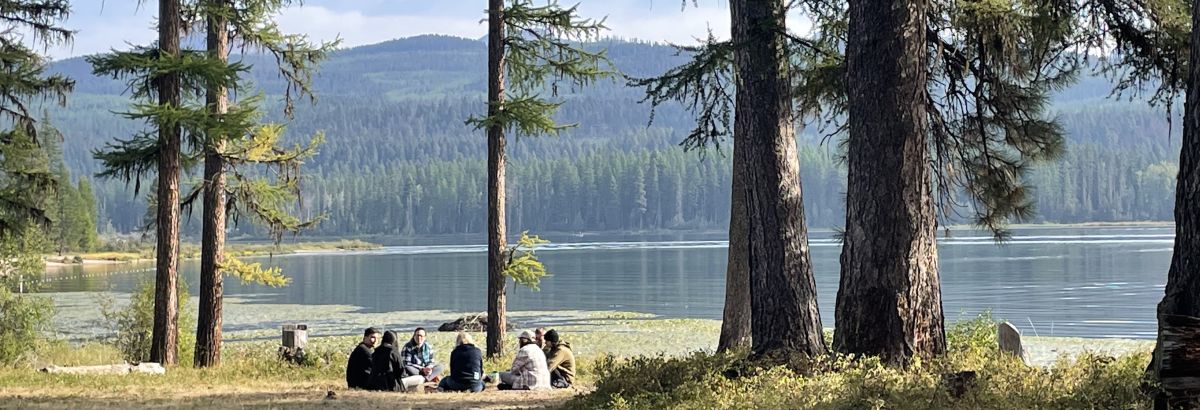How does it work?
Each semester will teach you something different about farming and food systems, from spring planting season to the fall harvest. Students are able to take up to 10 credits at the PEAS Farm, or the equivalent of one growing season with the spring, summer, and fall internships.
The PEAS Farm serves over 60 students from diverse majors each year through our internship programs. Try it out with a fall or spring internship. Or, jump right into farming with our summer intensive.
For all of these internship experiences, there are no prerequisite courses and no experience is required. All internships are open to both graduate students and undergraduates.
The PEAS Farm Internships meet internship requirements for several majors, minors, and certificates on campus, including Environmental Studies and Climate Change Studies Programs.
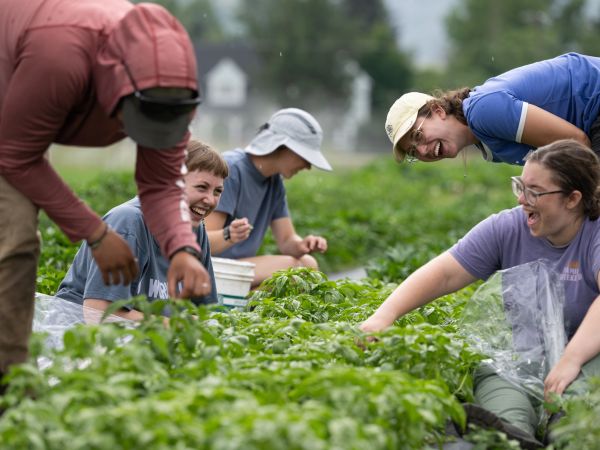
Summer PEAS Intensive
The Summer PEAS Intensive is the heart of the PEAS program beginning in late May and running through late August. Students dedicate 20 hours per week to learning as they grow food for the larger community; forming a tight-knit community around the growing (and eating) of food during this 12-week program. Interns work Monday to Thursday mornings on the farm (8 am to noon). The summer program also features field trip experiences (every Friday from 8 am -1 pm) including two overnight field trips, providing a diversity of perspectives on agriculture and food systems. Summer lessons range from soil health to cultivar selection to pest management to seed saving. Supporting this learning is a focus on building resilient, equitable, and relational food systems.
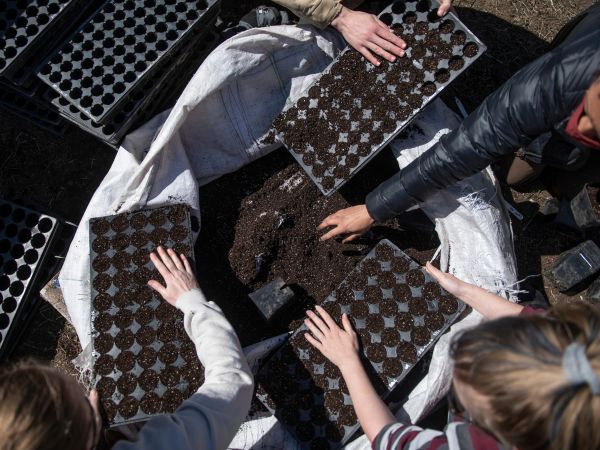
Spring PEAS Internship
Beginning in March until the end of the spring semester, when the ground is covered in snow, the Spring PEAS Internship starts in the warmth of the greenhouse. Students choose one of four field sections, either MW 9-11:50 AM, MW 1-3:50 PM, TR 9-11:50 AM, or TR 1-3:50 PM. All field sections convene on Wednesdays from 4-5:20 PM at the farm for a formal lecture. For 8 weeks, 7 hours a week, our spring interns focus on planting. Students study many topics related to seeds including cultivar selection, sourcing, germination, sowing, and soil preparation. Students plant the farm and bring it to life while examining soil health and fertility, weed management, and field planning. In addition to annual plant care, students in the spring program tend to perennial plants in the PEAS Farm orchard, with a particular focus on pruning and holistic orchard management.
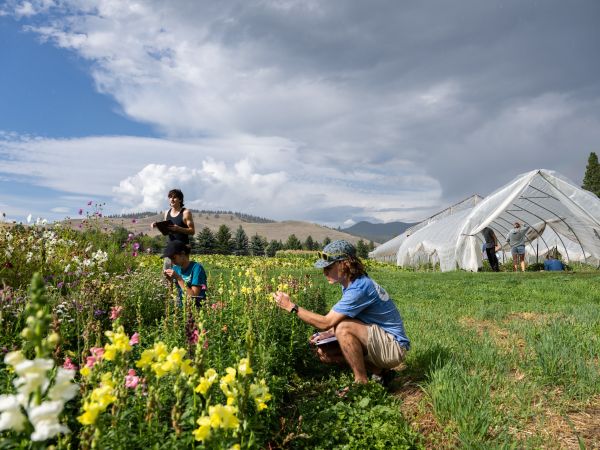
Fall PEAS Internship
During the Fall PEAS interns start with the first week of the semester until mid-October, students bring in the harvest – including some of the major, single-crop harvests of onions, potatoes, and winter squash for the Missoula Food Bank. Students choose one of four field sections, either MW 9-11:50 AM, MW 1-3:50 PM, TR 9-11:50 AM, or TR 1-3:50 PM. All field sections convene on Wednesdays from 4-5:20 PM at the farm for a formal lecture. Students spend 7 hours a week for 8 weeks gaining knowledge related to harvesting, such as crop-specific harvest and washing techniques, curing and storage, cover cropping, soil management, composting, and seed saving. These harvests supply our Community Supported Agriculture (CSA) program, the Missoula Food Bank, and the Five Valleys Seed Library, among other community programs.
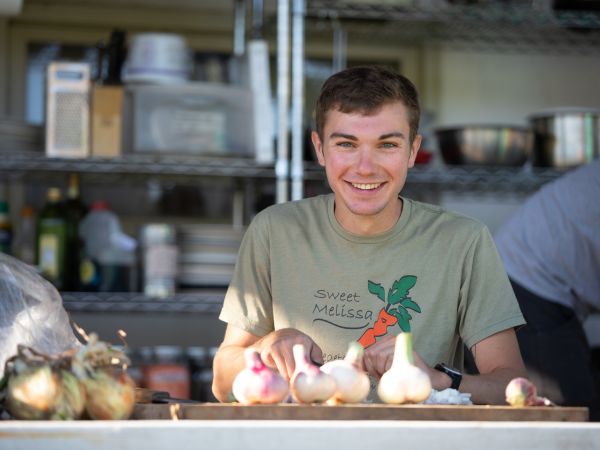
Practicum in Sustainable Agriculture Education
Each fall semester, Jason Mandala teaches the 2-credit Practicum in Sustainable Agriculture Education. Students in this course gain instruction and experience in educating Missoula’s school-age youth about food and farming at the PEAS Farm. Students practice environmental education skills by leading two field trips each week for five to six weeks with elementary school groups visiting the PEAS Farm. During these field trips, students teach fun-filled educational activities focused on the social, scientific, and nutritional components of sustainable agriculture and the food system. The class meets each Friday morning at PEAS to practice lessons, share teaching experiences, and discuss related readings. Prior experience as a PEAS Farm student is helpful, but not required.
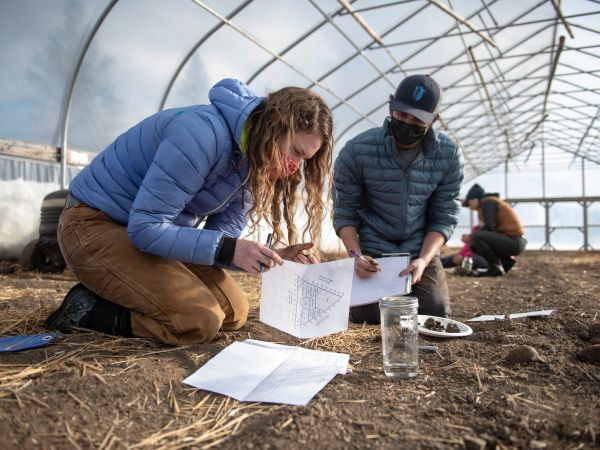
Certificate in Sustainable Agriculture and Food Systems
The Certificate in Sustainable Agriculture and Food Systems provides students with experiences, concepts, and skills that prepare them to create meaningful change in the dominant, industrial food system. Students develop their knowledge and skills through upper-division courses that emphasize systems thinking, interdisciplinary study, agroecology, civic engagement, and through experiential, service-learning at the PEAS Farm. The certificate is available to both undergraduate and graduate students.
